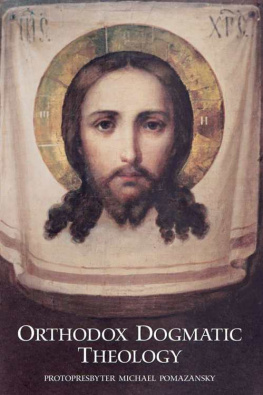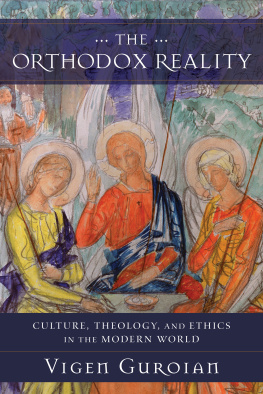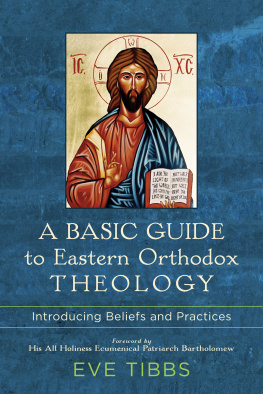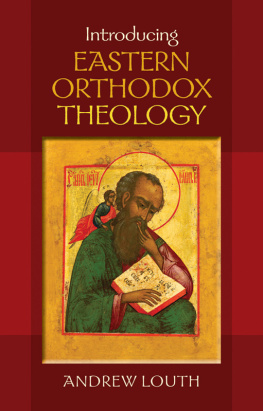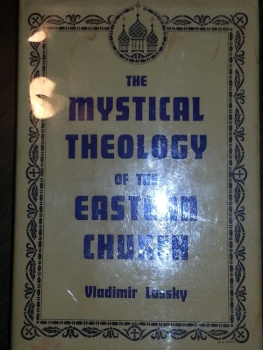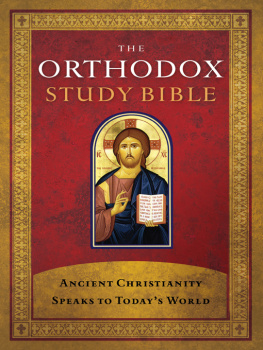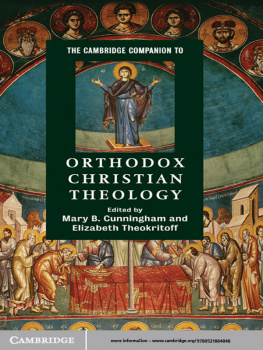
The First Ecumenical Council.
Icon by Monk Theophanes the Cretan, Catholicon of St. Nicholas, Stavronikita Monastery, Mount Athos, ca. 1546.
ORTHODOX DOGMATIC THEOLOGY
A CONCISE EXPOSITION
By
PROTOPRESBYTER MICHAEL POMAZANSKY
Translated and edited by
HIEROMONK SERAPHIM ROSE
and the St. Herman of Alaska Brotherhood
Third Edition

ST. HERMAN OF ALASKA BROTHERHOOD
2009
Copyright 1983, 2009 by the
St. Herman of Alaska Brotherhood
P. O. Box 70
Platina, California 96076
www.sainthermanpress.com
Translated by Hieromonk Seraphim Rose with the blessing of His Eminence AVERKY, Archbishop of Syracuse and Holy Trinity Monastery (Russian Orthodox Church Outside of Russia), from the Russian original (Pravoslavnoye Dogmaticheskoye Bogosloviye)
published by Holy Trinity Monastery, Jordanville, New York, 1963, and revised by the author in 1973.
First (English) Edition, 1983
Second Edition, 1994
Second Printing of Second Edition, 1997
Third Edition, 2005
Second Printing of Third Edition, 2009
Digital Edition, 2014
Front cover: 19th-century icon of Christ Not Made with Hands, from Valaam Monastery in Russia, now located at the St. Herman of Alaska Monastery, Platina, California.
Note: pagination in e-book readers will vary. References to page numbers refer to the paperback edition.
Publishers Cataloging-in-Publication
Pomazansky, Protopresbyter Michael, 18881988.
Orthodox dogmatic theology: a concise exposition / by Protopresbyter Michael Pomazansky; translated and edited by Hieromonk Seraphim Rose and the St. Herman of Alaska Brotherhood. 3rd ed.
p. cm.
Originally published in Russian as: Pravoslavnoye Dogmaticheskoye Bogosloviye.
Includes bibliographical references and indexes.
ISBN13: 9780938635697
ISBN10: 0938635697
1. Theology, Doctrinal. 2. Orthodox Eastern Church Doctrines. I. Rose, Seraphim. II. Title.
BX320.3.P66 2005
230/.19dc22 2005936831
Contents
Chapter 8: The Holy Mysteries (Sacraments)
The Life of the Church in the Holy Spirit
Chapter 9: Prayer
As the Expression of the Inward Life of the Church
Chapter 10: Christian Eschatology
The Future Fate of the World and Mankind
The Ecumenical Councils
and the Heresies That Have Attacked the Churchs Teaching
Fathers and Teachers of the Church
and Church Writers Mentioned in the Text of
Orthodox Dogmatic Theology
Editors Preface to the Third Edition
P ROTOPRESBYTER Michael Pomazanskys Orthodox Dogmatic Theology has long been regarded as a standard source of Orthodox theology. After its publication in Russian in 1963, it was used as a textbook at Holy Trinity Orthodox Seminary in Jordanville, New York, at which Fr. Michael taught.
In 1973, Hieromonk Seraphim Rose, an American convert to the Russian Orthodox Church, conceived the idea of translating Fr. Michaels book and publishing it in English. As a missionary-minded monk living at the St. Herman Monastery in the mountains of northern California, Fr. Seraphim was always seeking ways of making the sources of Orthodox Christianity available to his fellow Americans. He believed that Orthodox Dogmatic Theology was important and timely for the contemporary English-speaking Orthodox world.
Fr. Seraphim chose this book as a vehicle by which to present Orthodox theology in English not only because he found it a clear, concise and Biblically based presentation of Orthodoxy, but also because it was the main dogmatics textbook of Holy Trinity Seminary. The Jordanville seminary/monastery was the chief theological, intellectual and publishing center of the Russian Orthodox Church Outside of Russia, of which Fr. Seraphim was a faithful son. But even more significant to Fr. Seraphim was the fact that the Jordanville school of Orthodoxy (as it was called by others) was a continuation of the more traditional streams of theological thought and spiritual life in pre-Communist Russia.
The Jordanville school was not without its critics, who accused it primarily of being heir to the Western influences that had made their way into the Russian Orthodox Church prior to the Bolshevik Revolution. These influences so the critics claimed were more than mere blemishes on an otherwise sound tradition: they were a cancer that affected the whole body of the tradition, and therefore a total overhaul of the tradition was necessary.

Hieromonk Seraphim Rose (19341982).
Fr. Seraphim was aware of this criticism, but he strongly believed that the Orthodox Patristic theological tradition and way of life had never been lost in Russia, nor had it been lost in its continuation at Jordanville. The Western influences, he said, only touched upon certain outward modes of expression (which he agreed were unfortunate), but did not touch the heart of the tradition. The Russian theological tradition was firmly established, having been founded on a conscious assimilation by the Russian people of the Orthodoxy of the Byzantine Empire, and of the mind of the Holy Fathers. To dismiss this theological tradition as being hopelessly lost, and to attempt to start over, as it were, was an enterprise fraught with its own dangers. Concerning a would-be contemporary theologian who was writing outside of any such firmly established tradition, Fr. Seraphim wrote: I have the impression [he] demonstrates quite a bit of rationalism himself; he writes not as from within a tradition himself, but as one who is striving to get into that tradition. Our uninterrupted Russian tradition, for all its real and supposed Westernisms, has a strength and resiliency which the rediscoverers of tradition do not have.
Fr. Seraphim highly valued Fr. Michael precisely as one who wrote and taught theology from within the Orthodox tradition. Desiring to be linked up to the tradition himself, he would write to Fr. Michael asking him theological and historical questions that would arise in the course of his own writing and publishing. We ourselves, he noted, follow the Jordanville school, which is in the best Orthodox tradition (and is being much and unjustly slandered today), and we frequently take counsel from Fr. Michael Pomazansky and others, whose judgment we trust and respect, knowing that thus we are in a good tradition and do not have to trust our own faulty judgment for all the answers.
As highly as Fr. Seraphim regarded Fr. Michael, there was one theological writer whom he valued even more: Archbishop Averky of Jordanville, the rector of Holy Trinity Seminary and the abbot of Holy Trinity Monastery. Not long after his conversion to Orthodoxy, Fr. Seraphims archbishop and spiritual father, St. John (Maximovitch) of Shanghai and San Francisco, had directed him to Archbishop Averky as a reliable guide in theological matters. Archbishop Averky, Fr. Seraphim wrote later, is in the genuine Patristic tradition as few other living Orthodox fathers. A disciple of the great 20th-century theologian and holy hierarch, Archbishop Theophan of Poltava, Over the years, Fr. Seraphim would write to Archbishop Averky as he did to Fr. Michael, seeking guidance on many issues.
In 1973, when Fr. Seraphim formed the desire to translate Fr. Michaels textbook, he wrote to Archbishop Averky and Fr. Michael, asking their blessings. Soon he received blessings from both of them, together with a number of initial revisions which Fr. Michael asked to be incorporated into the English edition. Later Fr. Michael sent a new introduction and corresponded with the fathers of the St. Herman Monastery about the books content. As a result of this exchange, he sent new material to be added to the English version, primarily in order to underline yet further the Orthodox teaching on the redemption of mankind. Asking for nothing in return for the rights to his book, he even sent donations to help to fund the books publication.
Next page
